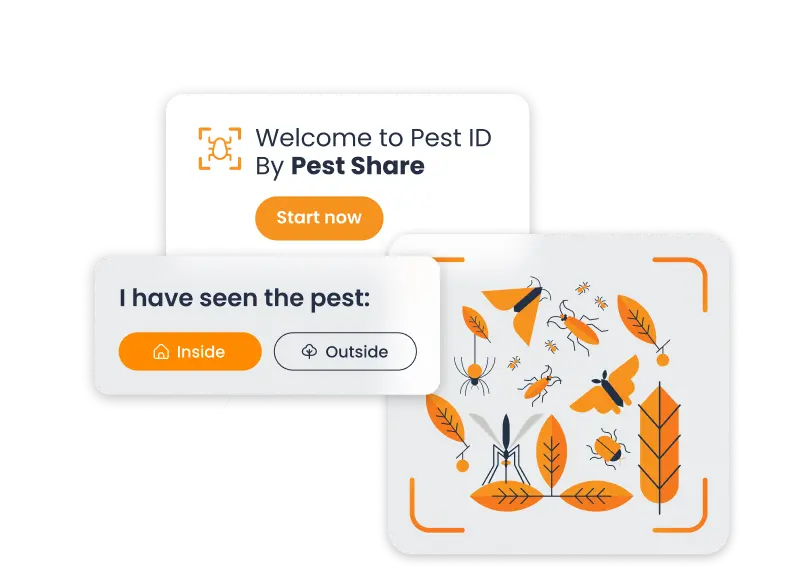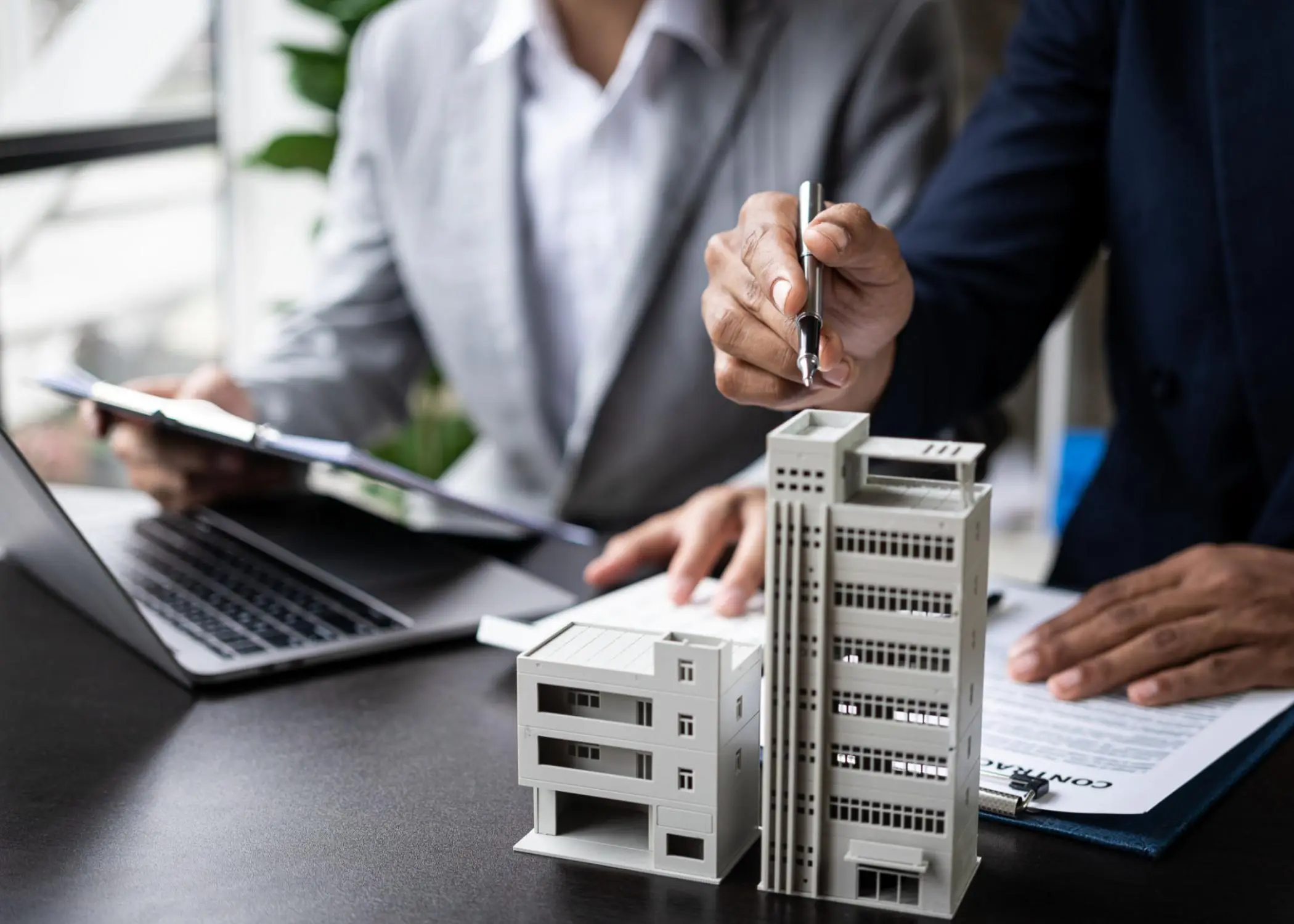Termites can cause a huge amount of damage to your property without much warning. As a property manager, it’s important to stay ahead of termite infestations before they become a bigger problem. Protecting your complex from these pests is not just about keeping the property safe; it also helps keep tenants happy and maintain the property’s value.
This guide will walk you through some of the main things to know about termite control and how you can take proactive steps to protect your property.

Smarter Pest Control, Fewer Headaches.
Understanding Termites
Termites are small insects that feed on wood, making them a serious threat to buildings, especially those made or framed with wood. The three most common types you might come across are subterranean termites, drywood termites, and dampwood termites.
Subterranean termites:
These termites live underground and build mud tubes to reach food sources. They are responsible for most of the termite damage in the U.S. because of their large colonies and aggressive nature.
Drywood termites:
Unlike subterranean termites, drywood termites don’t need contact with soil. They live directly in the wood and can infest any wooden structure, including furniture.
Dampwood termites:
These termites are attracted to wood that has a high moisture content. They are less common but still dangerous if there is water damage on your property.
Knowing what kind of termites you’re dealing with is crucial because each type might require a different treatment.
Why Termite Control Is Important for Property Managers
Termites can silently chew through the wood in your buildings, causing structural damage that may cost thousands of dollars to repair. This can impact the safety and overall condition of your complex. As a property manager, it’s your responsibility to make sure tenants feel safe and the property is in good shape. Ignoring termites can lead to unhappy tenants, expensive repairs, and even lower property value.
Here are a few ways termites can affect your property:
Costly Repairs:
Termites weaken the structure of your buildings, leading to expensive repairs that could have been avoided with early treatment.
Lower Property Value:
A termite infestation can decrease the market value of your property. If the damage is extensive, future buyers or investors may be wary of purchasing it.
Tenant Turnover:
Tenants who find out about termites might decide to leave, especially if the issue is not addressed quickly. Keeping your complex termite-free will help you retain tenants and keep your occupancy rate high.
Signs of Termite Infestation
It can be hard to spot termites because they often work in hidden areas, like inside walls or under floors. However, knowing the signs of termites can help you catch them early.
Look out for:
Mud Tubes:
Subterranean termites build these as a way to travel from their nests to their food source. They are usually found near the foundation of buildings.
Discarded Wings:
When termites swarm, they shed their wings. If you find piles of wings near windows or doors, it could be a sign of a nearby colony.
Hollow Wood:
Tap on wood around your property. If it sounds hollow, termites may have eaten through the inside.
Frass:
This is termite droppings and looks like tiny pellets. Drywood termites often leave these behind near the infested area.
Blistered or Buckling Wood:
This is a sign that termites have burrowed into the wood and damaged it from the inside.
Preventing Termite Infestations
Prevention is key when it comes to termites. Here are a few simple steps you can take to prevent termites from becoming a problem at your complex:
Regular Inspections:
Have a pest control professional inspect your property for termites at least once a year. Early detection can save you a lot of time and money.
Reduce Moisture:
Since termites are attracted to moisture, make sure your property has good drainage and no areas of standing water. Repair any leaks in pipes, roofs, or faucets immediately.
Store Wood Away from Buildings:
If you have any wood piles or firewood on the property, store them away from the buildings. Termites will use these piles as a food source and may eventually move into your property.
Seal Cracks and Holes:
Termites can enter your property through small cracks or holes. Regularly check for gaps in your building’s foundation, walls, and roof, and seal them to prevent termites from getting in.
Treat the Soil:
For subterranean termites, treating the soil around your property with a termiticide can create a barrier that keeps termites out.
What to Do If You Find Termites
If you discover termites, it’s important to act quickly. Here’s what to do:
Call a Professional:
Termite treatment is not something you should try to handle on your own. A licensed pest control company can assess the situation and recommend the best course of action.
Isolate the Area:
If possible, try to keep tenants away from the area that is infested. This will prevent any accidents and keep the termites from spreading.
Get a Treatment Plan:
Your pest control provider will likely suggest one of the following treatment options:
Baiting Systems:
These stations attract termites and deliver a slow-acting poison that they take back to the colony, eventually wiping it out.
Liquid Termiticide:
This is applied to the soil around the building, creating a barrier that kills termites when they come into contact with it.
Fumigation:
In extreme cases, your property may need to be tented and fumigated to eliminate termites inside the structure.
Communicate with Tenants:
Be transparent with your tenants about what’s happening. Let them know how you are handling the issue and reassure them that their safety is your top priority.
Protecting Your Property Long-Term
Termite control is not a one-time thing. You need to stay on top of it year-round to protect your property. Consider signing up for a termite prevention plan with a pest control company. These plans often include regular inspections, treatment, and monitoring to ensure that termites don’t come back.
For property managers, Pest Share offers services that help you keep track of pest problems, including termite infestations. Pest Share’s system notifies you if termites are found on your property, so you can handle the issue right away. Plus, with Pest Share, pest control is included as part of your property’s amenities, making it easy to keep tenants happy and your buildings safe.
By staying proactive, you can avoid the stress and cost of termite infestations. Remember, a little prevention goes a long way. With regular inspections and treatments, you can protect your complex and keep it termite-free for years to come.






